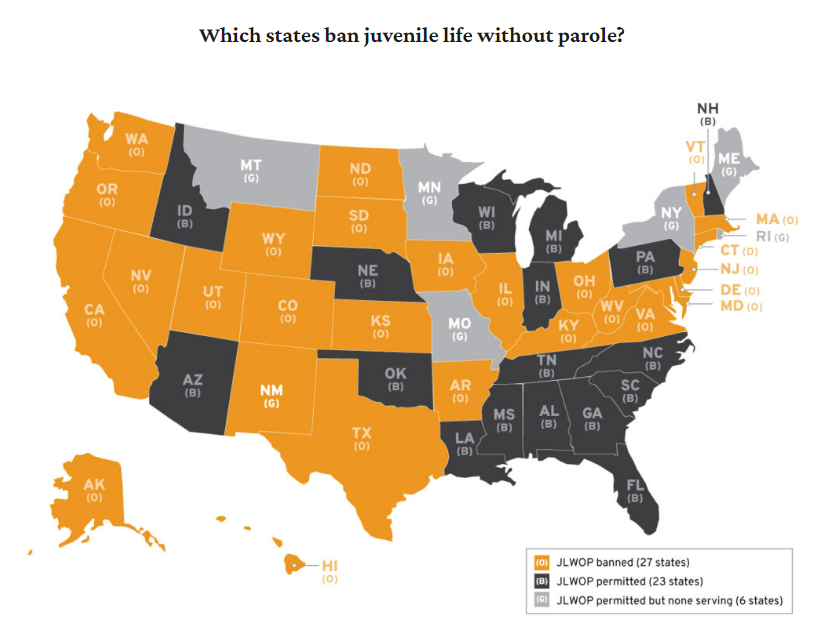Ending Juvenile Life Without Parole Sentences - Halfway There
Michigan next in line to ban JLWOP sentences after Miller v. Alabama ruling

The U.S. juvenile justice system recently crossed a major milestone that went largely unnoticed. On Feb. 7, 2023, Illinois became the 26th state to ban juvenile life without parole. Four days ago, New Mexico Governor Governor Michelle Lujan Grisham signed into law SB64, the No Life Sentences for Juveniles Act, prohibiting sentencing juvenile offenders to life in prison without eligibility for parole. Now that more than half of U.S. states have taken this important step, we may be at the tipping point necessary to end this cruel and unusual practice once and for all.
On the Illinois Senate floor, Sen. Donald DeWitte spoke forcefully in favor of the bill. “I consider myself a law-and-order Republican, but I also believe in rehabilitation. I believe there are some people who make extremely poor decisions in the very early portions of their lives. For these people, we need to offer them hope and let them know we recognize that people can redeem themselves.”
Michigan is next in line follow Illinois’ and New Mexico's lead. These legislative efforts come more than a decade after the Supreme Court ruled that mandatory life without parole for children violates the Eighth Amendment. The majority opinion in Miller v. Alabama established that children are constitutionally different from adults, stating “their lack of maturity and underdeveloped sense of responsibility leads to recklessness, impulsiveness, and heedless risk-taking. They are more vulnerable to negative influences and lack the ability to extricate themselves from horrific, crime-producing settings.”
Life without parole is an objectively harsher sentence for a 17 year old defendant. Those extra years behind bars also require many more decades of public expenditures. States spend an average of $33,274 per incarcerated individual annually, a cost that nearly doubles after a person turns 55 due to increased healthcare needs. Therefore, a 50-year sentence for a 16 year old will cost taxpayers upward of $2.25 million. In 2020, Philadelphia District Attorney Larry Krasner estimated the decarceration of 174 former juvenile lifers in his jurisdiction will save $9.5 million in correctional costs over the first decade alone.
There is no evidence ending juvenile life without parole has a negative impact on public safety either. That same study in Philadelphia found just a 1.14 percent recidivism rate among the former juvenile lifers released, lower than the rate for the general population. In Louisiana, 109 juveniles originally convicted of murder and previously sentenced to LWOP have been released from prison following the Miller ruling. Of the 109 released from prison, zero have returned. These results showing low to no recidivism is consistent with a growing body of scientific research that shows people age out of criminal behavior and that longer sentences fail to deter crime.
Michigan voters - it's time to call and email your legislators (Michigan legislative lookup) and remind them to support bills ending JLWOP.










